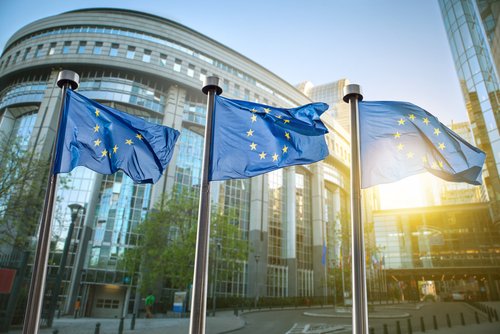Brussels (Brussels Morning) The European Parliament voted today to call on the World Trade Organisation (WTO) to temporarily waive intellectual property (IP) rights protection for COVID-19 vaccines and treatments. The vote was reinforced by yesterday’s WTO decision to start negotiations on exempting vaccine patents.
After the US unexpectedly voiced its support for COVID-19 vaccines waivers, the EU felt the pressure to follow suit, despite initial reluctance to support such measure.
“We made it! The European Parliament’s plenary calls for a comprehensive approach to defeat COVID-19 with TRIPS waiver, technology transfer and using contracts as important leverage”, an exultant MEP Bernd Lange (S&D) announced.
“Now it’s time for Council and Commission to move on waivers with the WTO”, he added.
MEPs have broadly agreed that voluntary licencing, know-how and technology transfer to countries with vaccine-producing industries is the most important and effective way to scale and speed up global production in the long term.
WTO’s greenlight
Yesterday, an agreement by WTO members to start negotiations on the TRIPS waiver gave extra impetus to the Parliament’s decision — and also applied extra pressure on the EU — to support exports of vaccines to developing countries.
The WTO’s TRIPS Council agreed to move ahead with a “text-based process”, effectively opening the door to negotiations over a proposal to waive intellectual property associated with COVID-19 tests, treatments and vaccines, Geneva-based trade officials said.
The WTO TRIPS agreement enables members to waive an obligation in exceptional circumstances by consensus-based decision-making.
The World Health Organization has repeatedly condemned unequal access to vaccines, noting that rich countries have seized more COVID-19 vaccines than required by actual populations, while developing countries have obtained only a small fraction of the doses so far distributed and used worldwide.
Inter-institutional relations
At a joint press conference, on 8 May with Council President Charles Michel and Portugal’s PM António Costa, Commission President Ursula von der Leyen said the EU was “open to discuss” a temporary IP exemption.
The Commission’s chief insisted on a public-private partnership proposal, noting that production bottlenecks, investment in global manufacturing and contributions to the COVAX scheme still “remain key priorities for expanding global access to vaccines”.
In their responses about how to address production bottlenecks, MEPs called on the EU “to rapidly eliminate export barriers and to replace its own export authorisation mechanism with export transparency requirements”.
MEPs persisted with their demands for full disclosure of future advance purchase agreements, particularly for next generation vaccines, and said such contracts should include transparency requirements for suppliers.
Finally, the Parliament called for the urgent production and delivery of 11 billion doses of COVID-19 vaccines, much needed to immunise 70% of the world’s population. So far, only a fraction of that amount has been produced.
World Bank
Despite the WTO’s position and the positive developments within the Parliament, the move to waive IP rights from COVID-19 vaccines and treatments was received coolly by World Bank President David Malpass, who on Tuesday declared that it could “hamper innovation in the pharmaceutical sector”, Reuters reported.




